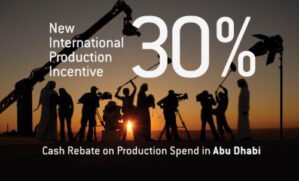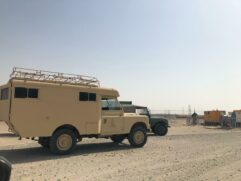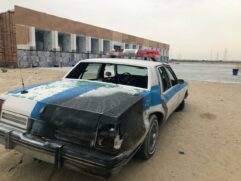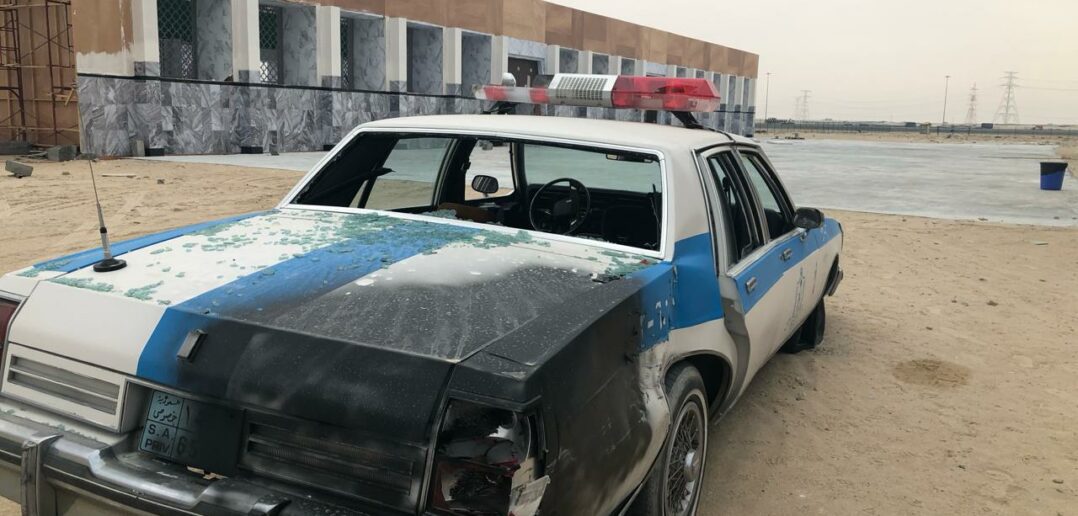In the dynamic world of entertainment, Arabic producers are doing amazing things.
From the perspective of an outsider, the Arabic content production industry might appear chaotic, underfunded, with erratic distribution patterns, and it may incorrectly seem that producers prioritize short-term gains over long-term vision.
Take a closer look, and you’d be amazed by how much is achieved in this vibrant industry of organized chaos. However, a common shortfall among many Arabic producers is a lack of confidence in themselves and their industry. As a result, efforts to expand globally tend to be more solitary than collaborative.

While reading this article, keep in mind that 90% of Arabic producers don’t have the level of support that their international counterparts do. Almost all types of « support » come with strings attached- Want a 30% rebate? you must produce within specific premises, using specific resources- regardless wether or not it aligns with your plot, budget, or creative story telling. While intentions are good, and the fact that some support is better than no support- in a fragmented and increasingly competitive content production industry, institutions need to prioritize ROI.
Access to government funds. That’s very scarce, but if available, it would often be on the condition/ expectation that the story line must be tweaked to align with some national agenda, or emphasize a historical aspect, or simply showcase a country’s features to attract tourism and other production projects. It’s not a bad thing, but the very idea that a producer will need to bake so many elements into a story line, and appease a variety of opinions, is naturally very restrictive to the creative process. This also often considerably reduces the potential for commercializing the video asset,be it a film or series.
Credit- based bank/ institution funding sources for TV/ Film projects like bank loans for example is a foreign concept in this part of the world, and almost do not exist. This is partially due to the lack of unified tools needed to properly run risk analysis, lack of data, and limited clarity on scopes of distribution of such projects. We will elaborate on this topic in a different article.
With these restrictions and limited resources mind, Arabic producers have still been able to create miracles, that not only are regional hits enjoyed by billions of viewers, but to a (small extent) are starting to compete on the global scale. The Arabic drama/ Film production industry is currently worth more than 1.5 billion dollars*- so this mighty little industry must be doing something right!
In fact, their innovative practices are so noteworthy, that they could provide valuable lessons for global entities. Here are the top five aspects where Arabic producers excel compared to the rest of the world:
1. Commitment to historical accuracy
Take, for example, the historical series « Al Asouf » season 3. The series narrates the history of Saudi Arabia through a sequence of events that shaped the Kingdom into what it is today. Arabic producers delve deep into research, ensuring every aspect, from attire, landscape, to weaponry and vehicles, aligns seamlessly with historical facts. Unlike Hollywood’s tendency to generalize Arab countries as mere desert villages, Arabic producers leave no stone unturned when it comes to authenticity. The tanks and military vehicles that appear in the series were the actual tanks sourced and flown in from Europe for that purpose. The producers refused cheap look-alike alternatives and insisted on going through the logistical nightmare to transport the real vehicles and all accessories to the filming location in the Middle East, emphasizing their unmatched commitment to historical accuracy. This dedication not only enhances the viewing experience but also educates audiences about the rich heritage of Arab civilization.
Unlike some Western productions that often resort to stereotypes, Arabic producers prioritize cultural sensitivity and accuracy in representation, even when portraying foreign cultures, hence paving the way to instil a culture of inclusivity and representation in the entertainment industry- an important value that Hollywood can perhaps learn from.
The process of research for factual historical accuracy is one thing, but the actual execution and getting the necessary approvals to depict the scenes in a certain way is not always easy, especially when it comes to recounts of religious or politically sensitive moments in history. Mohamed Al Enzi, CEO of Kuwait- based Al- Maha productions, is one of the biggest and most established producers of Arabic historical/ period dramas. He stated:
« Until not too long ago, as producers specialized in Arabic historical dramas, we were subject to strict restrictions and censorship rules. We vehemently fought the system to be able to depict the lives of prophets and their families and to incorporate religious fatwas into drama projects intended for entertainment. » » We successfully produced over a dozen such projects, including globally acclaimed ones like « Khaled Ibn Al Waleed, » « Ahl Al Bayt, » and « Al Khulafa Al Rashideen, » which were broadcast and streamed on more than 30 platforms worldwide. We genuinely enjoy undertaking these challenging projects despite their high costs…. these stories are bold, entertaining, and most importantly, we didn’t make them up!”
This demonstrates the level of passion and respect Arabic producers have when crafting these fine Arabic projects.

2. Extremely resourceful!
The positive outcome of facing financial constraints for years, Arabic producers have mastered the art of creating impressive productions with minimal resources. By repurposing, recycling, leveraging relationships, and clever deal tactics such as insisting on signing bulk deals, they consistently perform beyond what is expected. Their knack for turning limitations into opportunities is a testament to their creativity and resilience, producing miracles that continue to intrigue other markets. How do you measure this? it’s an easy exercise:
Take any well-known international format and compare its budget to what we have regionally. Now, compare the quality. You’ll be surprised! Arabic producers can achieve similar quality with just about a third of the average budget.
3. Producing Arabic series that cross borders and being sold overseas in new untapped markets like Russia, CIS Countries, and Latin America.
For example, the psychological thriller « Room 207 » and the action-horror series « The Devil’s Promise » found success in these markets, marking a significant expansion for Arabic content, that may not be the often targeted, oversaturated Western market. Instead, it’s a non- Arab audience that appreciates original, non-monotonous, and not excessively commercialized content.
Arabic productions offer a refreshing perspective through nuanced storytelling. By exploring intricate historical narratives and multifaceted characters, they provide viewers with a deeper understanding of the world’s history and society. This emphasis on complexity and depth sets Arabic productions apart in the global entertainment landscape.
4. Producing in record time.
If it were a competition, Arabic Producers would hands down WIN for their ability to Produce High Quality content in record time. Trained over the years for « the Ramadan Rush » Arabic producers are able to push out upto 8 series in as little as 5 months- Despite facing tight deadlines and challenges, they manage to deliver high-quality series within months of filming, with stars often juggling multiple projects simultaneously. In our part of the world, « rushed projects » aren’t synonymous with « low quality. » For proof, take a look at some of Shahid’s top hits: « Safar Barlek, » A pan-arab historical drama, which according to our estimates cost over $10m to produce, was filmed in just 6 months, and « Al Asouf, » with production values estimated at around $5M per season, was produced in under two months!
5. Persistence and resilience
Even in the face of adversity, such as the pandemic in 2020, Arabic productions continued to thrive. While many productions worldwide came to a halt, multi million dollar Arabic series like « Rashash » and « Inheritance » pushed forward, with filming taking place in the UAE under strict safety protocols. During the years when « Stay at home » campaigns were the trend, over 150 brand- new Arabic series were released in Ramadan for viewers at home to enjoy, and the industry, injected with more advertising and subscription money, flourished and is continuing its upwards trend.. This resilience and adaptability underscore the commitment of Arabic producers to their craft and their audiences.

In conclusion, Arabic producers probably don’t realize it, but they’re punching way above their weight, with the limited resources and all the challenges that they face. It’s high time that we take a moment and appreciate what we’re doing right as an industry, rather than dwell about what’s going wrong.
Only about 10 years younger than Hollywood, Egypt’s film industry is about a 100 years old, filled with genuine cultural grandeur and richness that would make it difficult to compare to its western counterparts.
Saudi Arabia, often misrepresented as a « very young » content industry where the creative industry has been « discouraged »… this country, with its rich culture and heritage, has produced more than 700 full-fledged Drama series since the start of state television in the 1960’s. These productions have not only inspired and educated millions of young minds and families but also started competing regionally across the GCC in the early ’80s. This laid the groundwork for the multi-million dollar series we enjoy today on Shahid and Netflix.
Also worth mentioning that Lebanon and Syria, the politically volatile, war- torn regions of the Arab World, with zero government support for the creative industry, are home to the most commercially feasible, successful TV productions currently trading on a global scale in international content markets…. and this is all only the tip of the iceberg. Imagine what lies beneath this buzzing and severely underrated Arabic Content industry!
*Data mentioned in this article is obtained from HConsult’s Arabic Content Market Tracker- The tool that tracks all major tradable Arabic video Asset releases (Mainly Series and movies) + interviews with the biggest Arabic producers + gathered information about production values and estimates from Ad industry.
From October 21-24, MIPCOM CANNES will gather a growing number of Arabic producers and distributors this fall. Join the biggest community of TV professionals now !




